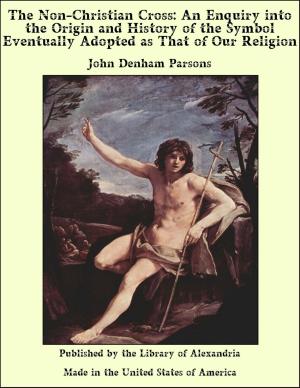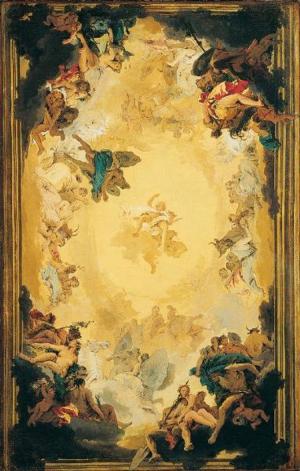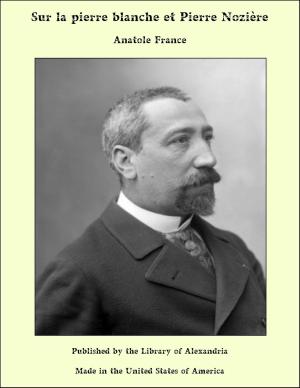A History of the Inquisition of Spain (Complete)
Nonfiction, Religion & Spirituality, New Age, History, Fiction & Literature| Author: | Henry Charles Lea | ISBN: | 9781465611499 |
| Publisher: | Library of Alexandria | Publication: | March 8, 2015 |
| Imprint: | Language: | English |
| Author: | Henry Charles Lea |
| ISBN: | 9781465611499 |
| Publisher: | Library of Alexandria |
| Publication: | March 8, 2015 |
| Imprint: | |
| Language: | English |
IT were difficult to exaggerate the disorder pervading the Castilian kingdoms, when the Spanish monarchy found its origin in the union of Isabella of Castile and Ferdinand of Aragon. Many causes had contributed to prolong and intensify the evils of the feudal system and to neutralize such advantages as it possessed. The struggles of the reconquest from the Saracen, continued at intervals through seven hundred years and varied by constant civil broils, had bred a race of fierce and turbulent nobles as eager to attack a neighbor or their sovereign as the Moor. The contemptuous manner in which the Cid is represented, in the earliest ballads, as treating his king, shows what was, in the twelfth century, the feeling of the chivalry of Castile toward its overlord, and a chronicler of the period seems rather to glory in the fact that it was always in rebellion against the royal power. So fragile was the feudal bond that aricohome or noble could at any moment renounce allegiance by a simple message sent to the king through a hidalgo. The necessity of attracting population and organizing conquered frontiers, which subsequently became inland, led to granting improvidently liberal franchises to settlers, which weakened the powers of the crown, without building up, as in France, a powerful Third Estate to serve as a counterpoise to the nobles and eventually to undermine feudalism. In Spain the business of the Castilian was war. The arts of peace were left with disdain to the Jews and the conquered Moslems, known as Mudéjares, who were allowed to remain on Christian soil and to form a distinct element in the population. No flourishing centres of industrious and independent burghers arose out of whom the kings could mould a body that should lend them efficient support in their struggles with their powerful vassals. The attempt, indeed, was made; the Córtes, whose co-operation was required in the enactment of laws, consisted of representatives from seventeen cities, who while serving enjoyed personal inviolability, but so little did the cities prize this privilege that, under Henry IV, they complained of the expense of sending deputies. The crown, eager to find some new sources of influence, agreed to pay them and thus obtained an excuse for controlling their election, and although this came too late for Henry to benefit by it, it paved the way for the assumption of absolute domination by Ferdinand and Isabella, after which the revolt of the Comunidades proved fruitless. Meanwhile their influence diminished, their meetings were scantily attended and they became little more than an instrument which, in the interminable strife that cursed the land, was used alternately by any faction as opportunity offered.
IT were difficult to exaggerate the disorder pervading the Castilian kingdoms, when the Spanish monarchy found its origin in the union of Isabella of Castile and Ferdinand of Aragon. Many causes had contributed to prolong and intensify the evils of the feudal system and to neutralize such advantages as it possessed. The struggles of the reconquest from the Saracen, continued at intervals through seven hundred years and varied by constant civil broils, had bred a race of fierce and turbulent nobles as eager to attack a neighbor or their sovereign as the Moor. The contemptuous manner in which the Cid is represented, in the earliest ballads, as treating his king, shows what was, in the twelfth century, the feeling of the chivalry of Castile toward its overlord, and a chronicler of the period seems rather to glory in the fact that it was always in rebellion against the royal power. So fragile was the feudal bond that aricohome or noble could at any moment renounce allegiance by a simple message sent to the king through a hidalgo. The necessity of attracting population and organizing conquered frontiers, which subsequently became inland, led to granting improvidently liberal franchises to settlers, which weakened the powers of the crown, without building up, as in France, a powerful Third Estate to serve as a counterpoise to the nobles and eventually to undermine feudalism. In Spain the business of the Castilian was war. The arts of peace were left with disdain to the Jews and the conquered Moslems, known as Mudéjares, who were allowed to remain on Christian soil and to form a distinct element in the population. No flourishing centres of industrious and independent burghers arose out of whom the kings could mould a body that should lend them efficient support in their struggles with their powerful vassals. The attempt, indeed, was made; the Córtes, whose co-operation was required in the enactment of laws, consisted of representatives from seventeen cities, who while serving enjoyed personal inviolability, but so little did the cities prize this privilege that, under Henry IV, they complained of the expense of sending deputies. The crown, eager to find some new sources of influence, agreed to pay them and thus obtained an excuse for controlling their election, and although this came too late for Henry to benefit by it, it paved the way for the assumption of absolute domination by Ferdinand and Isabella, after which the revolt of the Comunidades proved fruitless. Meanwhile their influence diminished, their meetings were scantily attended and they became little more than an instrument which, in the interminable strife that cursed the land, was used alternately by any faction as opportunity offered.















